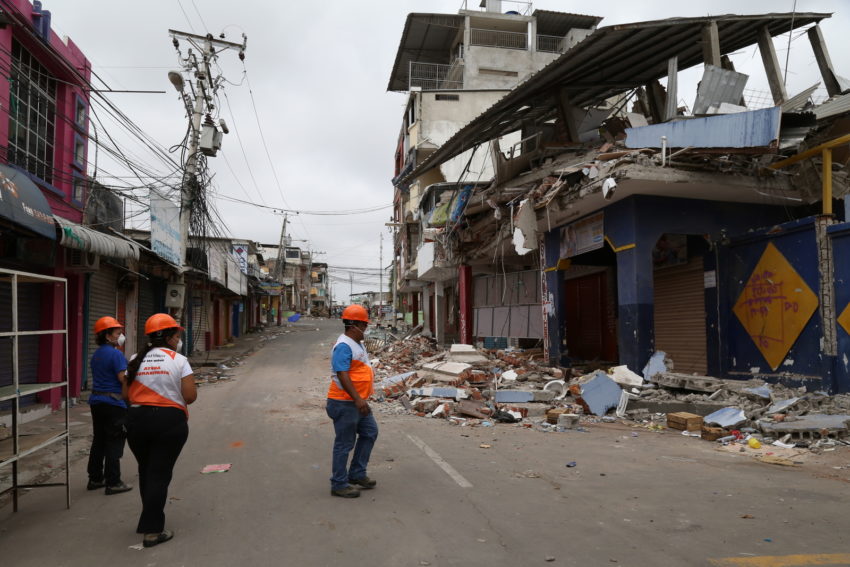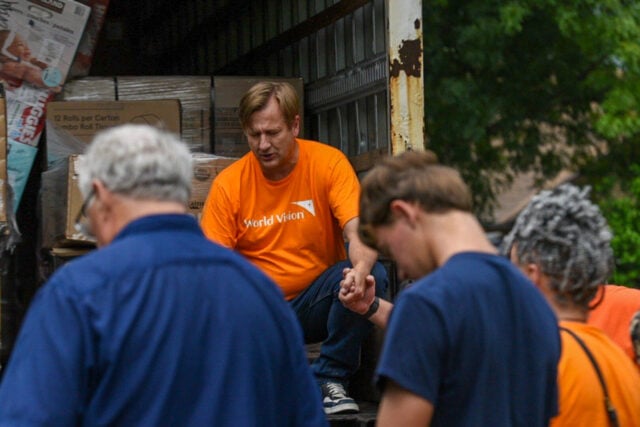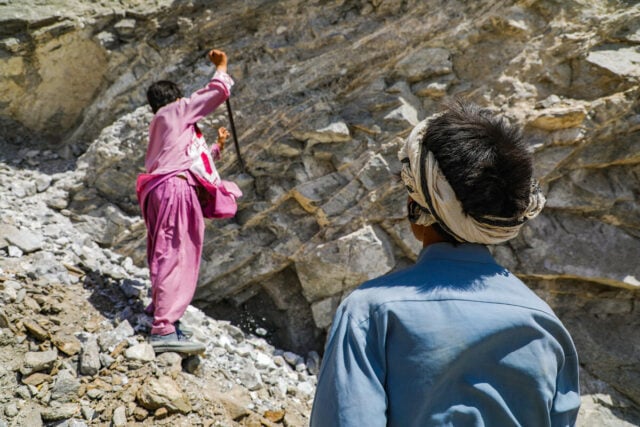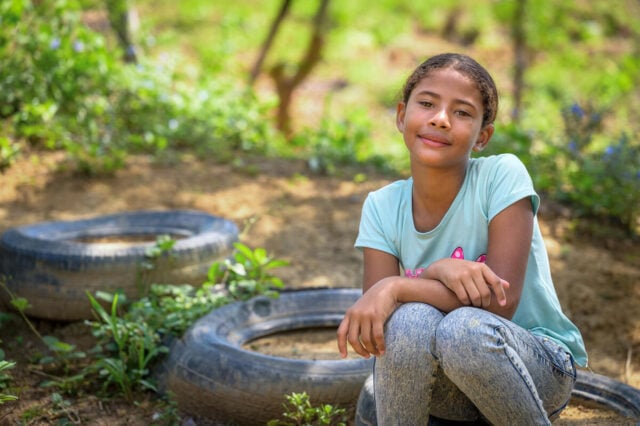On April 16, 2016, a magnitude 7.8 earthquake struck Ecuador’s coast, killing nearly 700 people and injuring more than 6,000 others. The epicenter was 17 miles from the town of Muisne in Manabí province. The worst-affected areas included Manabí, Esmeraldas, Santa Elena, Guayas, Santo Domingo, and Los Rios.
More than 700,000 people needed assistance, with an estimated 35,000 houses destroyed or damaged, leaving over 100,000 people in need of shelter. The quake also destroyed water, sanitation, and healthcare facilities.
2016 Ecuador earthquake: Facts, FAQs, and how to help
- Fast facts: 2016 Ecuador earthquake
- Are earthquakes common in Ecuador?
- What other types of natural disasters occur in Ecuador?
- How did the earthquake impact children in Ecuador?
- How did World Vision respond to the Ecuador earthquake?
- How long has World Vision worked in Ecuador?
- How can I help children and families impacted by disasters?
Fast facts: 2016 Ecuador earthquake
- The quake struck on April 16, 2016, with a magnitude of 7.8.
- Nearly 700 people died, and 6,000 others were severely injured.
- Most of the quake’s force was concentrated in Manta, Pedernales, and Portoviej in Manabí, but residents of the capital, Quito, felt it strongly too.
- Out of 7 million people in the worst-affected provinces, 700,000 needed immediate assistance.
- Damage was estimated at $2 to $3 billion, with 90% of infrastructure destroyed in some areas.
“This is the worst earthquake to strike Ecuador since 1987 when 1,000 people were killed. It was a truly terrifying event felt across the country,” said José Luis Ochoa, World Vision’s national director in Ecuador in 2016.
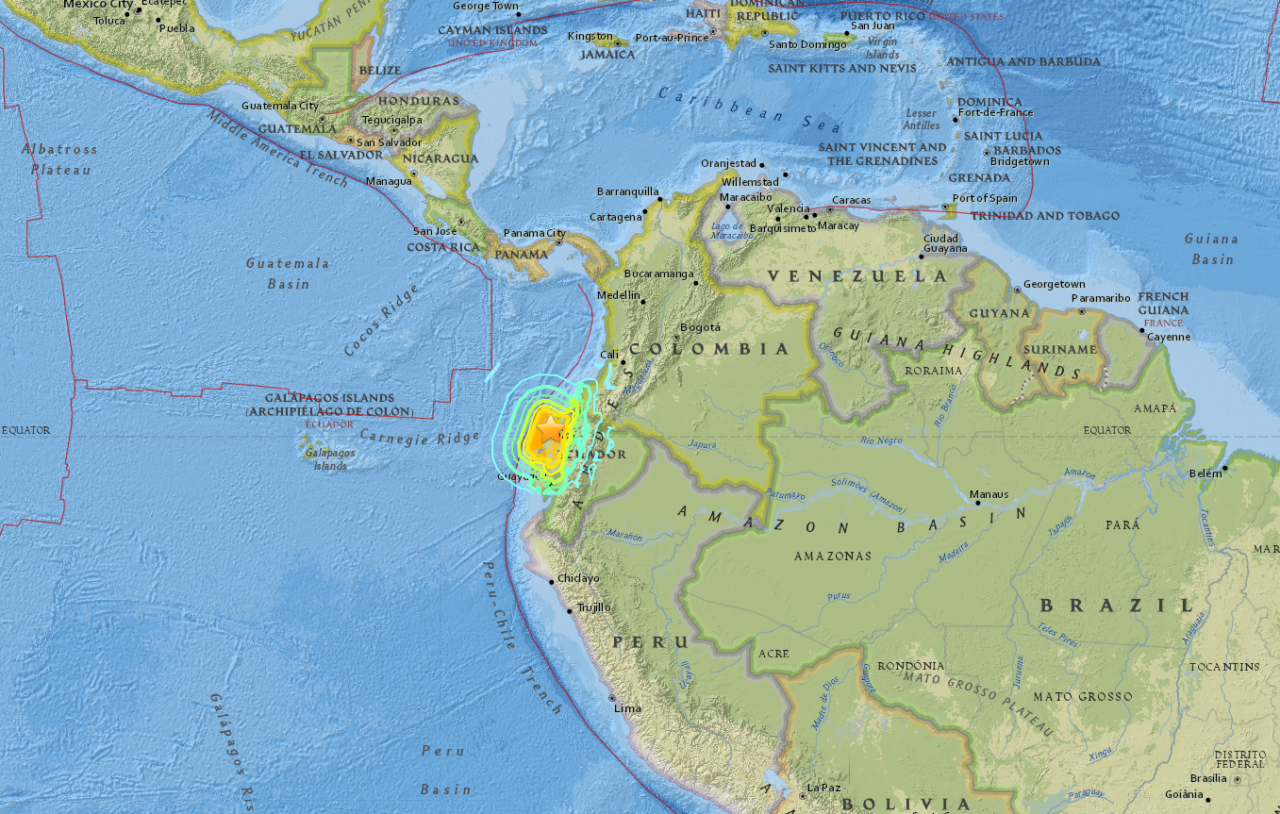
Are earthquakes common in Ecuador?
Ecuador experiences many earthquakes each year because it is located on the Pacific Ring of Fire, an area with high seismic activity. The country lies at the boundary where the Nazca and South American plates meet, moving toward each other at about 7 centimeters per year (about the length of a typical USB stick). This tectonic activity causes numerous earthquakes each year, including smaller tremors and more destructive ones. These quakes can happen at the plate boundaries, within the plates, or near volcanoes.
In the past 120 years, at least seven earthquakes of a magnitude 7 or above have occurred within 150 miles of the 2016 quake site.
What other types of natural disasters occur in Ecuador?
Ecuador, located along the Pacific Ring of Fire, is prone to tsunamis and volcanic eruptions. Other hazards include drought, flooding, landslides, and wildfires.
How did the earthquake impact children in Ecuador?
The April 16, 2016, earthquake significantly impacted children in Ecuador, with at least 150,000 affected, according to initial UNICEF estimates. The quake also damaged 119 schools, affecting 88,000 children, and destroyed 805 buildings while damaging 608 more. Additionally, two hospitals in Portoviejo and Chone collapsed. Mudslides in some of the worst-hit areas caused further damage to infrastructure and hindered relief efforts.
How did World Vision respond to the Ecuador earthquake?
Following the 2016 earthquake, we responded immediately to the disaster, delivering extensive emergency relief, including food, clean water, hygiene kits, shelter materials, and psychosocial support. Because of our presence in Ecuador for over four decades, we were able to quickly set up temporary shelters and distribute emergency supplies to impacted communities.
Achievements
Within two years of our response, we:
- Delivered aid to 124,250 Ecuadorians
- Distributed 8,689 hygiene kits and 620 food kits
- Set up 22 Child-Friendly Spaces for 3,392 children in attendance
- Supplied 11,374 water kits, 50 water purifiers, and installed 24 1,000-liter water tanks
- Delivered 5,146 shelter kits, 314 home-repair kits, 4,445 kitchen sets, and 1,000 tarpaulins
- Supported 33 families with cash transfers to build interim shelters
How long has World Vision worked in Ecuador?
Since 1978, World Vision has dedicated its programs to improving children’s lives through health, education, and community infrastructure initiatives in Ecuador.
